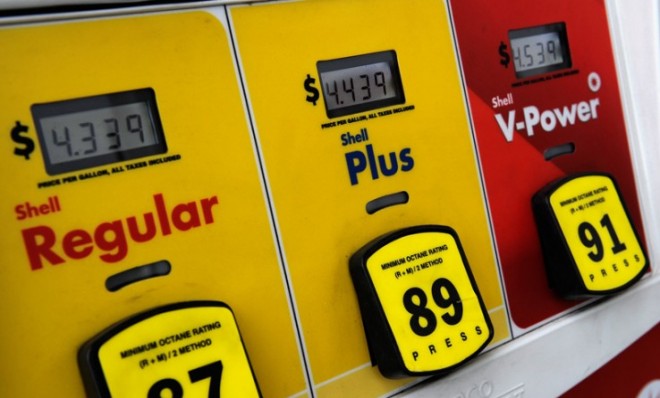Why are gas prices spiking?
Cheap fuel is usually one of winter's few bright spots. Not this year


A free daily email with the biggest news stories of the day – and the best features from TheWeek.com
You are now subscribed
Your newsletter sign-up was successful
Americans normally associate climbing gas prices with the long days of the summer driving season. But this year is different: The average price of regular gasoline has risen 45 cents in the past 31 days, the fastest spike since 2005, according to AAA. At $3.75 a gallon nationwide, it is "the most expensive we've seen gasoline in the dead of winter," John Townsend, a spokesman for AAA, tells The Washington Post. Indeed, gas prices have already broached $4 in some areas, and some analysts expect it to only get worse as summer approaches.
Experts say there's plenty of global supply — abetted by an energy boom in the U.S. — which means prices should be lower. So what's behind the unseasonal rise in prices? One theory is that U.S. "refineries are switching over from winter to summer fuel, which is more expensive to produce," says Jacqueline Leo at The Fiscal Times. (Read more about the difference between winter and summer fuel here.) Furthermore, some refineries in the States have gone offline for maintenance, while a major refinery in New Jersey shuttered its doors.
Others blame speculators in the energy futures market. "Like locusts ravaging fertile crops, gasoline prices are soaring again and eating away at the purchasing power of ordinary Americans," says McClatchy Newspapers. "And again, financial speculators appear to be a big part of the story." Critics say Wall Street has taken over the market, and driven up demand to boost profits.
The Week
Escape your echo chamber. Get the facts behind the news, plus analysis from multiple perspectives.

Sign up for The Week's Free Newsletters
From our morning news briefing to a weekly Good News Newsletter, get the best of The Week delivered directly to your inbox.
From our morning news briefing to a weekly Good News Newsletter, get the best of The Week delivered directly to your inbox.
The spike in prices could also signal a swell in consumer demand, which would reflect a growing economy.
And then there's the possibility that oil supply from the Middle East could be disrupted, which has driven up market prices. "All I have to do is watch TV for five minutes," Fadel Gheit, an oil analyst, tells The Washington Post, referring to the ongoing civil war in Syria, instability in Libya and Iraq, and Western sanctions against Iran.
With the recent expiration of a payroll tax cut, economists are worried that rising gas prices could take a toll on consumers and stall the economic recovery. If prices continue to rise, it will likely put more pressure on the Obama administration to take concrete steps to address the issue, such as approve the Keystone oil pipeline from Canada.
A free daily email with the biggest news stories of the day – and the best features from TheWeek.com
Ryu Spaeth is deputy editor at TheWeek.com. Follow him on Twitter.
-
 ‘Restaurateurs have become millionaires’
‘Restaurateurs have become millionaires’Instant Opinion Opinion, comment and editorials of the day
-
 Earth is rapidly approaching a ‘hothouse’ trajectory of warming
Earth is rapidly approaching a ‘hothouse’ trajectory of warmingThe explainer It may become impossible to fix
-
 Health insurance: Premiums soar as ACA subsidies end
Health insurance: Premiums soar as ACA subsidies endFeature 1.4 million people have dropped coverage